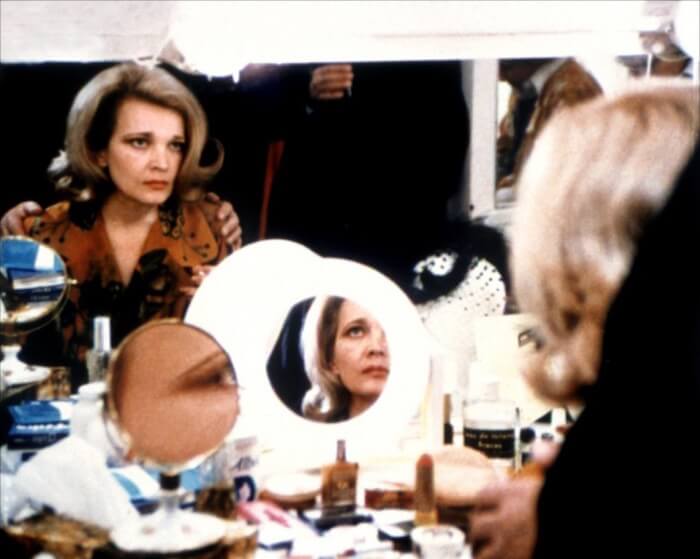The Best Old Movies on a Big Screen This Week: NYC Repertory Cinema Picks, July 13-19
 Opening Night (1977)
Opening Night (1977)
Directed by John Cassavetes
A drag of a cigarette. A hefty swig of booze. Amid murmurs of anticipation, renowned actress Myrtle Gordon, in the late summer of her career, makes her entrance on stage at the Orpheum Theater. She is starring in Second Woman, and her adoring fans await what’s to be an unforgettable performance. Cassavetes helms his ninth film, as ever, with a fluid camera, though this time around the movie proceeds like a remembered dream, or a beautiful, fragmented nightmare. His real life wife and muse, the incomparable Gena Rowlands, stars as Gordon, while he plays alongside her as Maurice, the play’s leading man. Friend and frequent collaborator Ben Gazzara is the play’s director, and Joan Blondell rounds out the ensemble as the playwright.
As they exit the theater, Myrtle is pawed at by a particularly volatile fan—seventeen-year-old Nancy—who professes her love through tears of joy. Though taken aback, Myrtle is kind to the girl as she’s rushed off into a car so the rest of the players can grab a bite to eat (and a much-needed drink). Without warning, there’s an accident we can view out the car’s rear window, and young Nancy is killed. Though the rest of them pay no mind, Myrtle is visibly shaken by the young girl’s death, will eventually see visions of her (which could also be labeled as an alcoholic hallucination) and thus begins her descent into hysterical tedium.
Rowlands’s virtuoso performance takes flight after this abrupt incident. The character’s professionalism and alcoholism merge, and at a great personal cost she becomes one with her character in the play––a woman who must confront the true value of herself in middle age. Cassavetes uses age as a superficial notion of time––the time Myrtle has self-indulgently lived before the accident, and the time afterward in which she is emotionally paralyzed. He also reinforces aging as his central theme in other ways, from Rowlands glancing deviously at herself in the mirror and constantly grabbing her face to the oversized photographs of an elderly woman that adorn the play’s set. No matter how superb their play performances, compared to the giant, bestial embodiment of aging, Myrtle and Maurice are trivial.
As rehearsals and performances continue, Myrtle’s desire to play her part agelessly grows larger, as does her fear that if she successfully plays an older woman, she’ll be propelled to that status in real life. Despite Maurice having been her former lover and the director’s obvious love for her, she remains isolated inside a half-empty bottle of J&B; her reality and fantasy coalesced. The relationships within Opening Night, both real and fictional, cross lines on screen until they are so muddled the only thing left for them to do is evaporate. This film sits perfectly in the Cassavetes oeuvre; it’s all about performance––its potential, its limits, and its future. Samantha Vacca (July 15, 1pm, 4pm, 7pm at the Metrograph’s “Cassavetes/Rowlands,” with Gena Rowlands in person for opening-night screening)
You might also like 



















